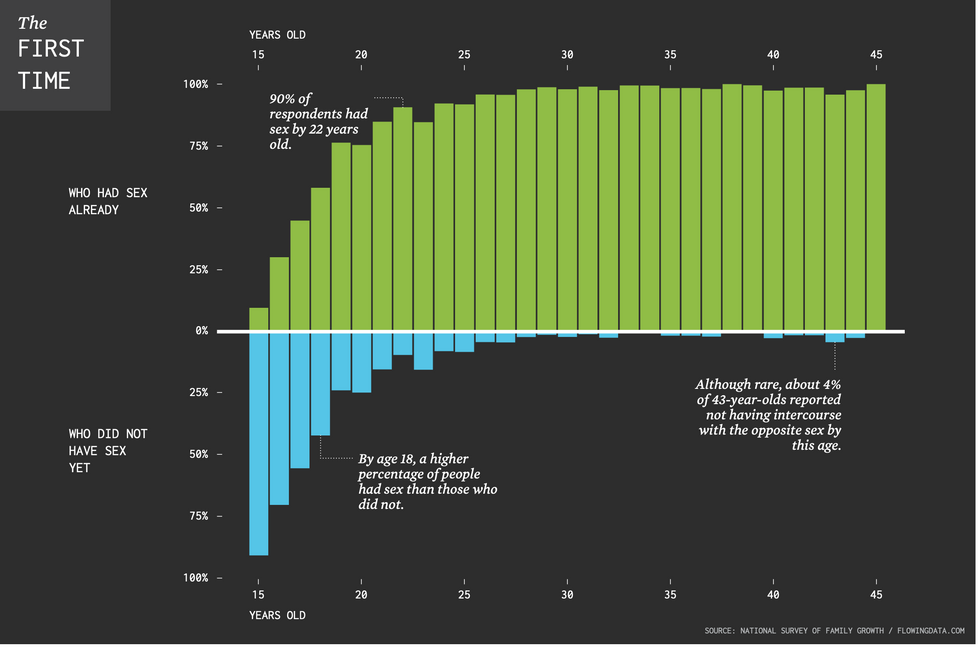Benjamin Franklin is famously credited with the saying "Early to bed and early to rise, makes a man healthy, wealthy, and wise." However, a new study has revealed that "early risers" may not always be wiser than "night owls." Instead, researchers at Imperial College, London, have found that the brains of night owls are sharper than those of early risers. They published the findings in BMJ Public Health.

The team of researchers combed through the bank of data extracted from more than 26,000 people and analyzed how different aspects of sleep like duration, patterns, and quality, affect mental sharpness and cognitive ability. They gathered information from these adults whether they called themselves a “morning person” or “evening person.”

As the results emerged, the researchers were surprised. Night owls seemed to show better “cognitive scores” than those who said they were morning larks. In one group of adults, the night owls scored 13.5% higher than morning larks, whereas, in another group, they scored around 7.5% higher than the larks. This led to a remarkable shattering of previously held notions, as children are usually taught to be morning persons and never night owls who wander sleeplessly during the night.
However, the results aren’t that surprising, because some of the most creative people in history are known to be night owls, including President Obama, Charles Darwin, Adolf Hitler, Winston Churchill, James Joyce, Marcel Proust, Keith Richards, and Elvis Presley, per The Independent.

“Our study found that adults who are naturally more active in the evening (what we called ‘eveningness’) tended to perform better on cognitive tests than those who are ‘morning people.’ Rather than just being personal preferences, these chronotypes could impact our cognitive function,” said lead study author, Dr. Raha West.
A 2009 study by evolutionary psychologist Satoshi Kanazawa also predicted that more intelligent individuals are more likely to be nocturnal than less intelligent individuals. Writing for Psychology Today, he said, “Those with a childhood IQ of less than 75 go to bed around 23:41 on weeknights in early adulthood, whereas those with a childhood IQ of over 125 go to bed around 00:29.” This, however, was not common in the ancestral environment, because during this time, predators outside roamed free and people were at the risk of becoming their prey. So, they naturally developed the habit of sleeping at night and waking up early.

Apart from timekeeping, another factor that researchers of Imperial College investigated was “sleep duration.” They found that a 7-to-9-hour sleep is optimum for good brain function, whereas sleeping for less than 7 hours or more than 9 hours can have detrimental effects on brain function. They also discovered that healthier lifestyles are associated with better cognitive function than lifestyles seething with chronic illnesses or alcohol consumption. Other factors that influence the brain’s capability include age, gender, bedtime routines, and consistent sleep schedules.
However, this doesn’t mean that all morning larks are duller than all the night owls. The important thing is what one’s body demands and what is its rhythm. Explaining this, Dr. West concluded, “While understanding and working with your natural sleep tendencies is essential, it’s equally important to remember to get just enough sleep, not too long or too short. This is crucial for keeping your brain healthy and functioning at its best.”

















 A symbol for organ donation.Image via
A symbol for organ donation.Image via  A line of people.Image via
A line of people.Image via  "You get a second chance."
"You get a second chance." 


 36 is the magic number.
36 is the magic number. According to one respondendant things "feel more in place".
According to one respondendant things "feel more in place". 
 Some plastic containers.Representational Image Source: Pexels I Photo by Nataliya Vaitkevich
Some plastic containers.Representational Image Source: Pexels I Photo by Nataliya Vaitkevich Man with a plastic container.Representative Image Source: Pexels | Kampus Production
Man with a plastic container.Representative Image Source: Pexels | Kampus Production
 Canva
Canva It's easy to let little things go undone. Canva
It's easy to let little things go undone. Canva
 Photo by
Photo by 
 Teens are waiting longer than at any point in the survey’s history. Canva
Teens are waiting longer than at any point in the survey’s history. Canva Chart on the age of a person’s first time having sex.National Survey of Family Growth/flowing data.com | Chart on the age of a person’s first time having sex.
Chart on the age of a person’s first time having sex.National Survey of Family Growth/flowing data.com | Chart on the age of a person’s first time having sex.